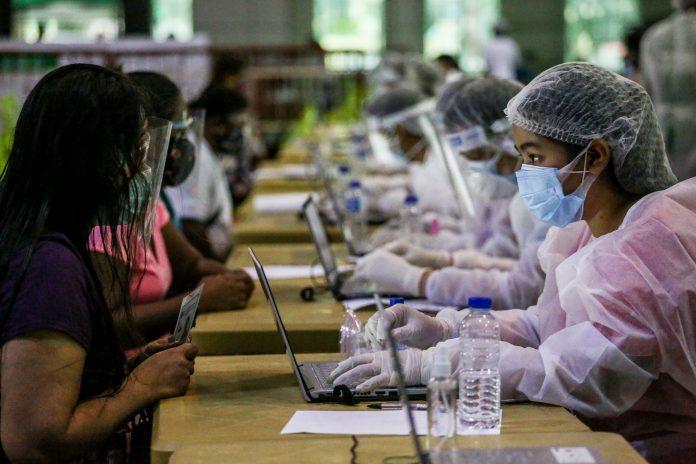As the country awaits for a new coronavirus disease vaccine to be available, the Catholic Bishops’ Conference of the Philippines (CBCP) made a plea to the government to give priority to the most at risk to the virus.
The CBCP Episcopal Commissions for Seminaries and Bio Ethics released a “Moral Guidance” that says initial supply of the vaccine should not be reserved to the wealthy, powerful, and influential.
“The goal of a vaccination campaign should be to reduce mortality and to protect the health care infrastructure of our country,” the prelates said.
Thus, top priority should be given to healthcare professionals because the country needs “healthy doctors and nurses to treat our sick so that our people can heal.”
Next in line should be adults and senior citizens who face the risk of severe diseases and even death due to their age and underlying medical conditions.
Essential workers who are inherently at risk because of their interaction to the public should receive the vaccine after. These are teachers, grocery store workers, public transportation workers, and national security personnel.
Those who are living in dense urban areas should also be given priority, the CBCP said.
In an address broadcast on national television on October 14, President Rodrigo Duterte said that once the vaccine is available, the poor under the government’s Pantawid Pamilyang Pilipino Program, along with police officers and soldiers who are “really vital to the security of the state,” will be given priority.
The Philippines is one of the 156 participants of COVAX, a global initiative that aims to give countries equitable access to safe vaccine.
An initial allocation of immunization for three percent of their population will be given to these countries. For the Philippines, it means 3.3 million out of its total population of 110 million.
But before proceeding with Phase III clinical trials, the CBCP said expert panels must evaluate results of Phase I and II trials first. To confirm the safety and efficacy of the vaccine, data should be open to the scrutiny of other scientists and medical professionals.
The prelates lauded Filipinos who have volunteered to be inoculated by candidate vaccines as part of clinical trials, calling them heroes who are helping the world win the fight against the virus.
They, however, reminded authorities and pharmaceutical companies to adhere to the highest ethical standards in conducting the trials.
“Full transparency is critical at every step of the development and distribution of a candidate vaccine,” CBCP said.
Risks and benefits of being injected with the candidate vaccine must also be communicated to all participants so they can give informed consent.
“This includes informing all participants of any adverse reactions observed in earlier clinical trials of the candidate vaccine and the possibility of still unknown acute reactions, including severe illness and even death,” they added.
Volunteers should not be offered excessive compensation to avoid the risk of exploiting the poor, a concern that is particularly pressing in the Philippines, the CBCP document said.
“At the conclusion of the protocol, the findings of the Phase III clinical trial must be made public, regardless of outcome. It is our prayer that the clinical trials conducted in our country will benefit the global effort to end the pandemic,” it added.
As of October 17, the Philippines has a total of 354,338 COVID-19 cases, 52,423 of which are active.









